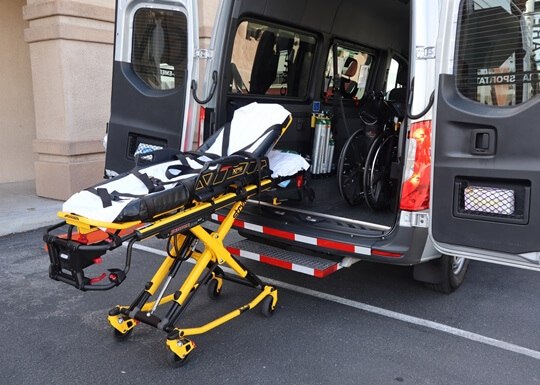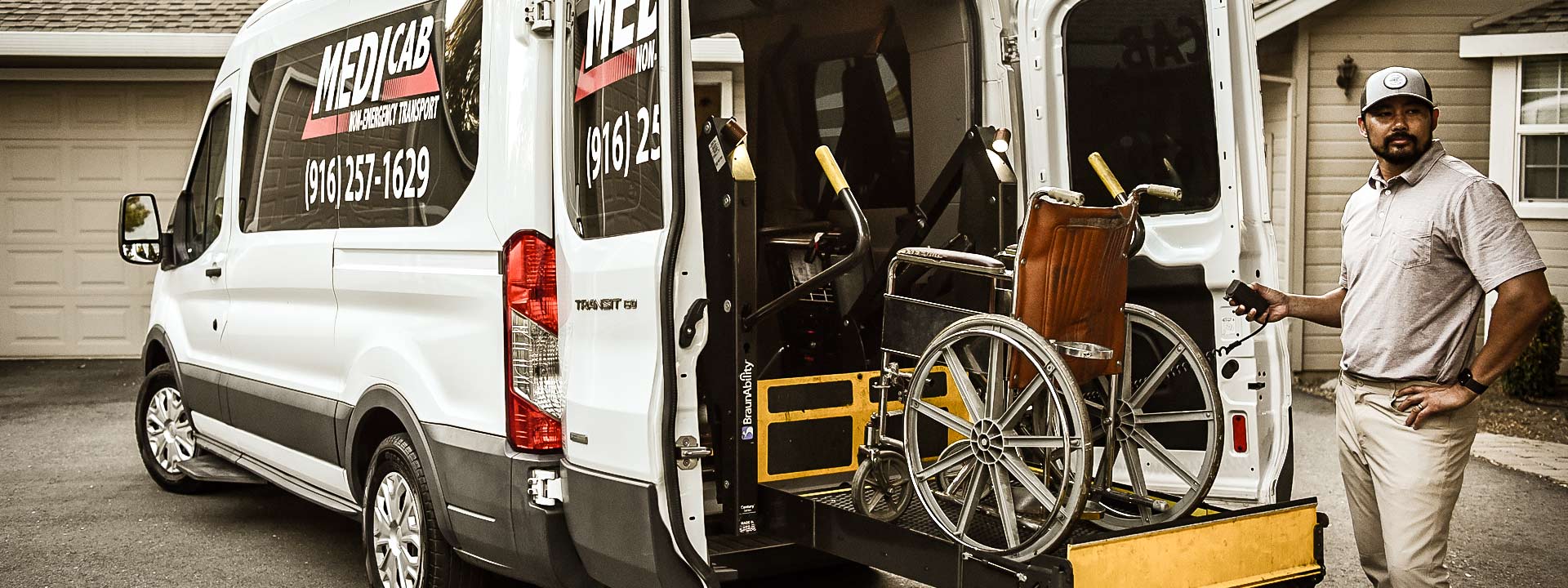Protect Your Health And Wellness Journey: Medical Transportation Services Near Me
Protect Your Health And Wellness Journey: Medical Transportation Services Near Me
Blog Article
Obtainable and Affordable Medical Transportation Options for Seamless Health Assistance
In the realm of medical care, the access and cost of clinical transportation are paramount in making certain individuals can access the treatment they need when they require it. The capability to seamlessly browse transportation alternatives can substantially impact a person's capacity to get timely medical focus, follow-up care, and total wellness. From non-emergency clinical transportation solutions to innovative options like telehealth, the landscape of medical transport is progressing to satisfy the varied needs of people. Thinking about the importance of this facet in healthcare shipment, exploring the variety of alternatives available comes to be important for resolving gaps in availability and price.
Non-Emergency Medical Transport Solutions

These services are staffed by qualified experts that focus on person comfort and safety during transit. Chauffeurs are furnished to take care of people with differing clinical demands and ensure that all journeys are trouble-free and smooth - Medical Transportation Services Near Me. Additionally, non-emergency medical transportation services commonly utilize specific automobiles that are wheelchair-accessible, making them suitable for a wide variety of people with various mobility needs
Volunteer Driver Programs
Volunteer motorist programs are crucial in supplying transportation support for people in need of non-urgent treatment. These programs count on the generosity of volunteers who donate their time and lorries to help transportation people to and from medical appointments. By making use of volunteer vehicle drivers, companies can provide an economical option for people who may not have access to dependable transportation.
One of the essential advantages of volunteer driver programs is the individualized treatment and attention that clients receive. Unlike traditional transport services, volunteer chauffeurs often create a connection with the people they help, creating a caring and supportive atmosphere during what can be a demanding time. Furthermore, volunteer motorist programs can assist connect the gap for people staying in country or underserved locations where public transportation choices may be limited.
Public Transport Options

Among the essential advantages of mass transit is its extensive schedule in city and country areas alike. This considerable network allows people look at this website from diverse histories to take a trip to medical consultations with relative convenience. Furthermore, public transport systems are frequently equipped to suit people with handicaps, providing available traveling choices for those with movement obstacles.

Ride-Sharing and Transport Network Firms
The development of modern-day transport alternatives for clinical purposes extends beyond traditional public systems like buses and trains to include the ingenious realm of ride-sharing and transportation network companies. Ride-sharing services such as Uber and Lyft have transformed the way people travel to clinical consultations, supplying ease and adaptability to people that might not have access to their cars or conventional mass transit. These platforms permit customers to ask for a trip with the touch of a button on their smartphones, providing door-to-door service that can be particularly beneficial for individuals with mobility obstacles or those calling for help.
Transport network business (TNCs) have additionally played a substantial duty in connecting the space in medical transportation services. Firms like Veyo and RoundTrip concentrate on non-emergency clinical transportation, catering to clients who require a greater level useful during their trips to clinical facilities. By partnering Related Site with doctor and insurance firms, TNCs guarantee that clients can access timely and reputable transport remedies, eventually adding to boosted wellness end results and client complete satisfaction.
Telehealth and Digital Examinations
Enhancing health care accessibility and benefit, telehealth and digital assessments have actually emerged as essential parts in contemporary clinical techniques, transforming the means patients engage with doctor. Telehealth leverages technology to facilitate remote communication in between patients and healthcare professionals, using a broad selection of solutions such as online appointments, remote monitoring, and electronic prescriptions. Online appointments enable patients to seek clinical recommendations, medical diagnosis, and treatment from the comfort of their homes, eliminating the requirement for physical sees to medical care centers. This strategy not just conserves time and reduces transportation costs for clients however likewise boosts the total performance of medical care delivery.
In addition, telehealth plays a critical function in prolonging medical services to underserved communities, country areas, and individuals with minimal flexibility. By damaging down geographical barriers and increasing medical care outreach, telehealth advertises early treatment, connection of care, and client interaction. As technology remains to advance, telehealth is positioned to play a significantly considerable function fit the future of medical care distribution, fostering better wellness end results and client fulfillment.
Conclusion

From non-emergency medical transport services to cutting-edge services like telehealth, the landscape of clinical transportation is evolving to fulfill the diverse demands of clients.Non-Emergency Medical Transport Services promote the timely and secure transportation of people requiring non-urgent clinical treatment to and from health care centers.The evolution of contemporary transportation choices for clinical purposes prolongs past conventional public systems like trains and buses to include the cutting-edge realm of ride-sharing and transportation network firms.Transportation network business (TNCs) have actually also played a considerable duty in bridging the space in clinical transportation services. Non-Emergency Medical Transport Providers, Volunteer Driver Programs, Public Transport Options, Ride-Sharing and Transport Network Companies, and Telehealth and Virtual Consultations all play a vital duty in dealing with transport obstacles to medical care access.
Report this page